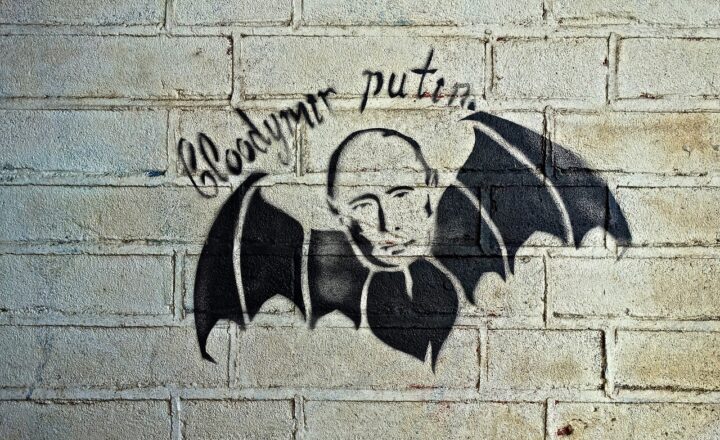How The Walking Dead Went from Indie Comic to Global Phenomenon
November 14, 2024

In the realm of comic books and television adaptations, few stories have achieved the kind of monumental success that *The Walking Dead* has. What began as a humble indie comic in 2003 has transpired into a cultural phenomenon, shaping the landscape of storytelling across various media. This article delves into the remarkable journey of *The Walking Dead*, exploring its origins, growth, and enduring appeal.
1. The Birth of *The Walking Dead* Comic
*The Walking Dead* was created by writer Robert Kirkman and artist Tony Moore, first debuting in *Image Comics* in October 2003. The comic initially presented a gripping tale of survival in a post-apocalyptic world dominated by zombies. Unlike many of its contemporaries, *The Walking Dead* focused more on the human condition and the moral dilemmas of survival, rather than just the zombies themselves.
Kirkman’s story quickly found a dedicated audience, drawing readers interested in the complex interactions among characters, ethical conflicts, and evolving relationships in a world turned upside down. The series was renowned for its willingness to drastically alter the fates of beloved characters, keeping readers on edge with unpredictable plot twists.
2. Transitioning to Television: The Risks and Rewards
By 2010, with the comic’s acclaim growing, the possibility of a television adaptation came to fruition. Produced by AMC, *The Walking Dead* premiered on October 31, 2010, quickly establishing itself as a ratings juggernaut. The transition from comic to screen was filled with both challenges and opportunities. AMC, historically a relatively niche cable network, took a monumental risk by investing in a show about zombies.
The pilot episode was directed by Frank Darabont, known for his work on *The Shawshank Redemption*. His vision, coupled with a strong cast featuring Andrew Lincoln, Norman Reedus, and Melissa McBride, ensured the adaptation captured the spirit of the comic.
The series delivered character-driven storylines, intense action, and thought-provoking themes, which resonated with both existing fans of the comic and new viewers. This broad appeal triggered an explosive growth in its popularity, leading to numerous awards and nominations.
3. Cultural Impact and Spin-offs
The immense success of *The Walking Dead* led to significant cultural repercussions. It permeated mainstream media, inspiring countless discussions on topics such as survival, morality, and the fragility of civilization. The show’s popularity opened the door for a variety of merchandise, including novels, games, apparel, and even exhibitions dedicated to its legacy.
Additionally, the franchise expanded with spin-offs like *Fear the Walking Dead* and *The Walking Dead: World Beyond*, as well as a plethora of web series. These extensions allowed the universe to explore various themes while introducing new characters, demonstrating the versatility of the original concept.
With its compelling storylines and robust character development, *The Walking Dead* stimulated interest in the zombie genre across film and television, influencing contemporary series and films.
4. Fandom and Community Engagement
Over the years, *The Walking Dead* cultivated an incredibly dedicated fan base. From cosplaying at conventions to engaging on social media, fans celebrated not only the series but also their connectedness through shared experiences. Events like *San Diego Comic-Con* became crucial platforms for unveiling new content, including trailers and behind-the-scenes footage, deeply involving the community.
The production team acknowledged fans’ passion by integrating viewer feedback and preferences into storylines. The engagement fueled the show’s longevity, proving how essential a loyal fanbase is to the success of a franchise.
5. Evolution and Future of the Franchise
Despite undergoing significant transformations over its run, *The Walking Dead* continues to explore the essence of humanity amidst chaos. With key characters evolving and new adversaries emerging, the stories remain fresh and engaging. The series has aired over a decade of content and is nearing its conclusion, drawing anticipation about its final seasons.
Looking ahead, AMC has committed to expanding the *Walking Dead* universe beyond the confines of the original series. Future projects aim to dive deeper into individual story arcs, expanding character backstories, and exploring the aftereffects of the apocalypse in different regions. This strategy not only guarantees *The Walking Dead* a lasting legacy but fosters optimism for what lies ahead.
Conclusion: A New Era of Storytelling
*The Walking Dead* has undoubtedly set a benchmark in television storytelling, demonstrating that comic books can transition into expansive, multifaceted narratives that captivate audiences. Through its clever storytelling, strong character development, and active fan engagement, the franchise has evolved from a simple indie comic into a global sensation. As it forges ahead, *The Walking Dead* is primed to influence future cinematic and televised narratives, reminding audiences of the fragility and resilience of human life in the face of unimaginable struggles.
From the comics to the screen, it exemplifies the power of storytelling and the ability to connect people through shared experiences and emotions.







